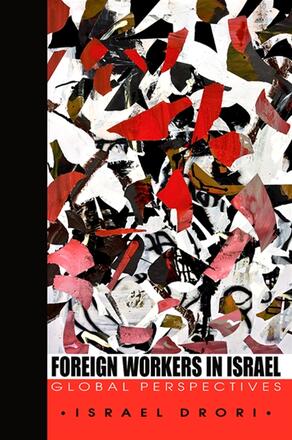
Foreign Workers in Israel
Global Perspectives
Alternative formats available from:
Explores how the entry of migrant workers into Israel raises questions beyond just those of the labor market.
Description
In this account of a social experiment gone awry, Israel Drori exposes a little-known and recent phenomenon: the importation of foreign workers from Third World economies to Israel. Focusing on Romanian, Thai, and Filipina migrants brought to Israel for specified periods of employment, Drori examines the effect of migrants on Israeli society, particularly the issue of national identity. What began as a political corrective—avoiding the danger of hiring Palestinians to do work that Jewish Israelis would not—has developed into a social and economic problem the state does not know how to handle. In addition to examining the work experiences and social lives of these workers, Drori also situates the Israeli case within a global context, where many affluent nations have significant populations of marginalized, undocumented workers.
Israel Drori is Professor at the School of Business Administration, College of Management, Israel, and also teaches at the Department of Public Policy at Tel Aviv University. He is the author of The Seam Line: Arab Workers and Jewish Managers in the Israeli Textile Industry and coauthor (with Izhak Schnell and Michael Sofer) of Arab Industrialization in Israel: Ethnic Entrepreneurship in the Periphery.
Reviews
"Drori explores critical issues. Especially because many of these workers are illegal, from as far away as China, Thailand, and the Philippines, the state offers them no protection, and they are often exploited. " — Jewish Book World